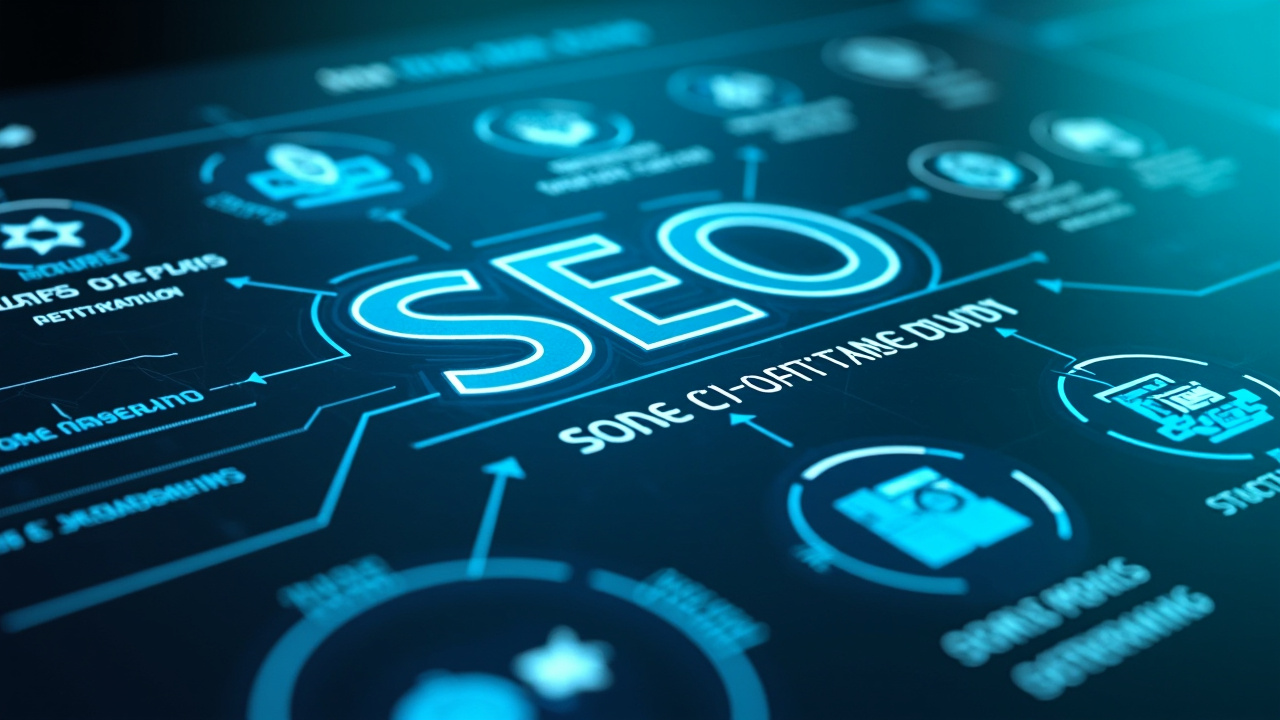In the ever-evolving digital ecosystem, Search Engine Optimization (SEO) has emerged as a critical component for businesses striving to gain visibility and engage their target audience. As the online world becomes increasingly competitive, the question isn’t whether you need SEO tools, but rather how to leverage them effectively. This article delves into the multifaceted world of SEO tools, guiding you through their capabilities, and uncovering how they can transform your digital strategy.
The proliferation of digital content has made it challenging for businesses to stand out. With search engines processing billions of queries daily, the importance of a well-defined SEO strategy cannot be overstated. The right tools not only enhance your SEO efforts but also provide actionable insights into market trends and consumer behavior. Yet, despite their potential, many organizations struggle with selecting the appropriate tools that align with their goals.
In this comprehensive guide, we’ll explore the landscape of SEO tools, examining their core functionalities and benefits. We’ll discuss how these tools can optimize your online presence, improve search rankings, and ultimately drive business growth. Among the solutions available, AI-driven platforms like GenQE offer innovative approaches to streamline processes, though they are just one piece of a larger puzzle. Buckle up as we embark on this journey through the SEO toolkit.
Understanding the Core Functions of SEO Tools

At the heart of every successful digital marketing strategy lies a robust set of SEO tools. These tools are designed to facilitate the optimization process, aiding businesses in achieving higher search engine rankings and increased online visibility. But what exactly do these tools do?
Keywords: The Foundation of SEO
One of the primary functions of SEO tools is keyword research. This involves identifying the terms and phrases that potential customers are using to search for products or services related to your business. Tools like Google’s Keyword Planner or Ahrefs provide insights into search volume, competition, and trends, enabling marketers to tailor content that resonates with their audience.
“Keywords are not just about rankings; they reveal the language of your audience.”
Effective keyword research goes beyond mere identification. It requires an understanding of user intent and the ability to anticipate future trends. By leveraging AI-driven insights, some advanced tools can predict keyword performance, offering a competitive edge.
Competitor Analysis: Staying Ahead of the Curve
Another crucial aspect of SEO is competitor analysis. SEO tools enable businesses to monitor their competitors’ strategies, uncovering high-performing keywords and backlink sources. This information is invaluable for developing a strategy that not only matches but exceeds competitors’ efforts.
Tools like SEMrush or SpyFu provide detailed competitor data, allowing businesses to benchmark their performance and identify areas for improvement. By understanding what works for competitors, businesses can refine their strategies and capitalize on new opportunities.
On-Page Optimization: Enhancing Content Quality
SEO tools also play a pivotal role in on-page optimization. This involves refining elements such as meta tags, headers, and content structure to ensure they align with SEO best practices. Tools like Yoast SEO or Moz Pro offer suggestions for improving page quality, enhancing readability, and ensuring content is search-engine friendly.
On-page optimization is not just about ticking boxes; it’s about delivering value to users. High-quality content that meets search engine guidelines is more likely to rank higher and engage users effectively.
The Role of Technical SEO in Website Performance

While content is king, technical SEO serves as the backbone of a well-optimized website. It focuses on improving the infrastructure of a website, ensuring it is easy to crawl, index, and navigate.
Site Speed and Performance: The Need for Speed
In today’s fast-paced world, site speed is a critical ranking factor. Search engines prioritize websites that load quickly, as they enhance user experience. Tools like Google PageSpeed Insights or GTmetrix analyze website performance, highlighting areas for improvement.
“A delay of even a second in page loading time can lead to significant drops in conversions.”
Optimizing site speed involves compressing images, leveraging browser caching, and minimizing code. By addressing these technical aspects, businesses can improve both user satisfaction and search engine rankings.
Mobile Optimization: Catering to a Mobile-First World
With mobile devices accounting for a significant portion of web traffic, mobile optimization is no longer optional. SEO tools help ensure that websites are responsive and provide a seamless experience across all devices. Google’s Mobile-Friendly Test is an essential tool for assessing a site’s mobile compatibility.
As search engines shift towards a mobile-first indexing approach, businesses must prioritize mobile optimization to maintain their competitive edge. This includes optimizing page load times, adjusting layout for smaller screens, and ensuring touch-friendly navigation.
Structured Data and Schema Markup: Enhancing Search Visibility
Technical SEO also involves implementing structured data and schema markup. These elements help search engines understand the content of a webpage, improving its visibility in search results. Tools like Google’s Structured Data Testing Tool assist in validating and optimizing schema markup.
By using structured data, businesses can enhance their search listings with rich snippets, increasing click-through rates and driving more traffic to their sites.
Leveraging Off-Page SEO for Greater Authority

While on-page and technical SEO are critical, off-page SEO plays an equally important role in building a website’s authority and credibility. This involves activities that occur outside your website but still impact your rankings.
Backlink Building: The Backbone of Off-Page SEO
Backlinks, or inbound links, are a key component of off-page SEO. They act as votes of confidence from other websites, signaling to search engines that your content is valuable and trustworthy. Tools like Ahrefs or Majestic help track backlinks, analyze their quality, and identify potential link-building opportunities.
Effective backlink building requires a strategic approach, focusing on acquiring links from reputable and relevant sources. Guest blogging, influencer collaborations, and content partnerships are popular methods for earning high-quality backlinks.
Social Media Engagement: Amplifying Reach
Social media platforms provide an excellent avenue for enhancing off-page SEO. By engaging with audiences on platforms like Facebook, Twitter, and LinkedIn, businesses can increase brand awareness and drive traffic to their websites. Social signals, such as likes and shares, can indirectly influence search rankings by boosting content visibility.
“Social media is not just a marketing tool; it’s a bridge between brands and consumers, fostering authentic relationships.”
SEO tools often integrate with social media analytics, offering insights into engagement metrics and helping businesses refine their social strategies for maximum impact.
Brand Mentions and Online Reputation: Building Trust
Monitoring brand mentions and managing online reputation are also vital off-page SEO activities. Tools like Brand24 or Mention track brand mentions across the web, providing insights into public perception and sentiment. By actively managing their online reputation, businesses can build trust with their audience and mitigate potential negative feedback.
A strong online reputation not only enhances brand credibility but also contributes to higher search rankings, as search engines prioritize trustworthy sites.
The Importance of Analytics and Reporting in SEO

Data-driven decision-making is at the core of successful SEO strategies. Analytics and reporting tools provide valuable insights into performance, enabling businesses to refine their efforts and achieve better results.
Tracking Key Metrics: Measuring Success
SEO tools offer a plethora of metrics to track, from organic traffic and bounce rates to conversion rates and keyword rankings. Google Analytics is a powerful tool that provides comprehensive data on website performance, user behavior, and traffic sources.
By regularly monitoring these metrics, businesses can identify trends, assess the effectiveness of their strategies, and make informed decisions to optimize their SEO efforts.
Reporting and Dashboards: Visualizing Performance
Effective reporting is essential for communicating SEO success to stakeholders. Tools like Google Data Studio or Tableau create customizable dashboards and reports, visualizing key metrics in an easily digestible format.
“Data without visualization is like a story without a plot; it fails to capture the audience’s attention.”
Visual reports not only simplify complex data but also highlight areas of progress and opportunities for improvement, fostering a culture of continuous optimization.
AI-Powered Insights: The Future of SEO Analytics
As AI technology advances, SEO tools are increasingly incorporating AI-powered insights. These insights offer predictive analytics, identifying emerging trends and opportunities before they become mainstream. Platforms like GenQE, although primarily focused on software quality, exemplify how AI can revolutionize traditional processes, providing businesses with a competitive edge.
AI-driven SEO analytics allow businesses to stay ahead of the curve, adapting their strategies to meet evolving market demands and consumer preferences.
Choosing the Right SEO Tools for Your Business

With a plethora of SEO tools available, selecting the right ones for your business can be daunting. The key is to identify tools that align with your goals and enhance your overall strategy.
Assessing Your Needs: Defining Objectives
The first step in choosing SEO tools is assessing your needs and defining clear objectives. Are you focusing on keyword research, competitor analysis, or technical SEO? Understanding your priorities will guide your tool selection process.
“Choosing the right tool is like picking the right partner; it should complement your strengths and address your weaknesses.”
Evaluate tools based on their features, ease of use, and compatibility with your existing systems. Consider both short-term and long-term needs to ensure the tools remain relevant as your business evolves.
Budget Considerations: Balancing Cost and Value
Budget is a critical factor in tool selection. While some tools offer free versions with limited features, others require a subscription or one-time purchase. It’s essential to balance cost with the value the tool provides.
Investing in high-quality tools can yield significant returns in the form of improved search rankings and increased traffic. However, it’s crucial to regularly assess the tool’s performance and ROI to ensure it continues to meet your needs.
Training and Support: Ensuring Seamless Implementation
Implementing new SEO tools often requires training and support for your team. Choose tools that offer comprehensive resources, such as tutorials, webinars, and customer support, to facilitate a smooth transition.
Consider platforms that integrate seamlessly with your existing workflow and offer intuitive interfaces. This minimizes the learning curve and ensures that your team can maximize the tool’s potential from day one.
Integrating AI and Automation in SEO Strategies

As the digital landscape evolves, AI and automation are becoming integral to SEO strategies. These technologies offer innovative solutions to traditional challenges, enhancing efficiency and effectiveness.
AI-Driven Content Creation: Enhancing Quality and Relevance
AI-powered content creation tools, such as OpenAI’s GPT models, assist in generating high-quality, relevant content at scale. These tools analyze user intent and industry trends, producing content that resonates with audiences and improves search rankings.
“AI doesn’t replace creativity; it augments it, providing insights that fuel innovation.”
By automating content creation, businesses can focus on strategic initiatives, ensuring their messaging aligns with evolving consumer needs and preferences.
Automation in Technical SEO: Streamlining Processes
Automation tools simplify technical SEO tasks, such as site audits, performance monitoring, and structured data implementation. These tools reduce manual effort, allowing teams to focus on higher-value activities.
Platforms like GenQE exemplify the potential of AI in automating complex processes, offering solutions that improve efficiency and accuracy. While primarily a software quality tool, its principles can be applied to SEO, illustrating the transformative impact of AI.
Predictive Analytics: Anticipating Market Trends
AI-driven predictive analytics offer a glimpse into the future, identifying emerging trends and opportunities. By leveraging these insights, businesses can proactively adapt their strategies, staying ahead of competitors and meeting consumer demands.
Predictive analytics not only enhance SEO strategies but also drive business growth, enabling organizations to capitalize on new market opportunities.
Conclusion: Embracing the Future of SEO

In the dynamic world of digital marketing, SEO tools are indispensable allies. They empower businesses to navigate the complexities of search engine algorithms, optimize their online presence, and achieve their strategic goals. From keyword research to AI-driven analytics, these tools provide a comprehensive suite of capabilities that enhance every aspect of SEO.
As we’ve explored, the integration of AI and automation is transforming the SEO landscape, offering innovative solutions to traditional challenges. While platforms like GenQE illustrate this potential, they are just one of many tools available to businesses seeking to enhance their digital strategies.
In conclusion, the future of SEO lies in embracing technology and innovation, leveraging the power of AI to drive efficiency, effectiveness, and growth. Businesses that adapt to these changes will not only survive but thrive in the ever-evolving digital ecosystem.
To explore the tools and strategies discussed in this article, consider conducting a thorough assessment of your current SEO practices and identifying areas for improvement. By embracing the future of SEO, you position your business for success in a competitive digital landscape.
Discover More Innovative Solutions
Want to learn more about the tools and technologies discussed in this article? Explore how these innovations can be tailored to your specific needs and workflow requirements.
Our team of experts is available to answer your questions and provide personalized insights into how modern solutions like GenQE can address your specific challenges.
If the link above does not work, please visit: https://calendly.com/dm-csimplifyit/30min?month=2025-05